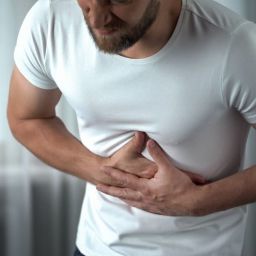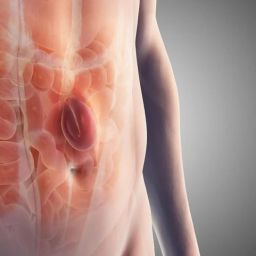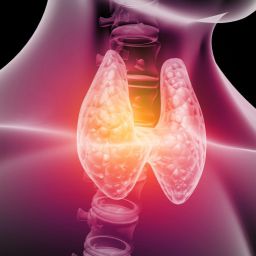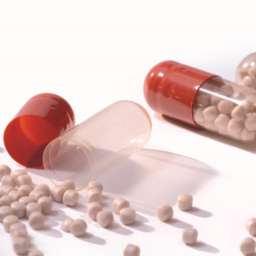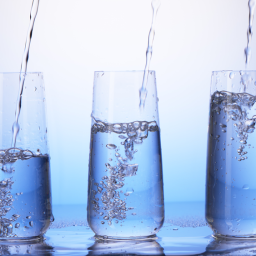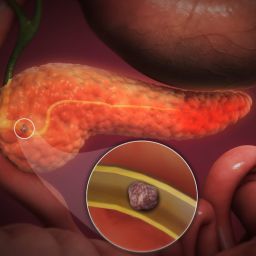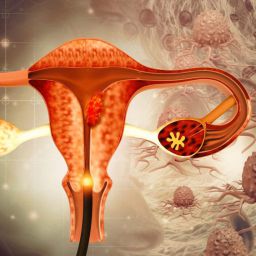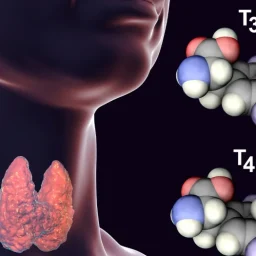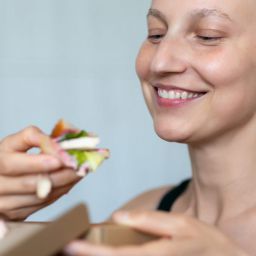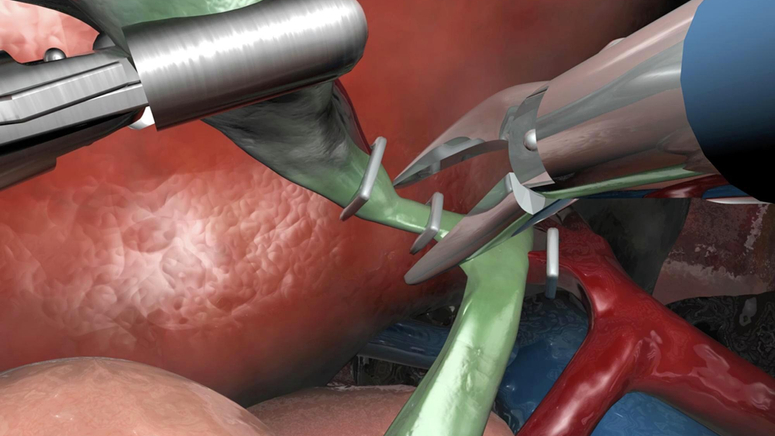
1. Understanding Gallbladder Surgery and Its Impact on Digestion
Before diving into specific dietary recommendations, it’s essential to understand how gallbladder surgery impacts digestion. The gallbladder stores bile produced by the liver and releases it into the small intestine when needed to help digest fat. Without a gallbladder, bile is no longer stored and is instead released directly into the intestines in smaller, continuous amounts. This means that large, fatty meals become more difficult to digest.
Post-surgery, many patients experience changes in their digestion, such as:
- Fat malabsorption: Without bile stored and released in a controlled manner, large amounts of dietary fat can be harder to digest, leading to discomfort.
- Diarrhea: Some people may experience diarrhea, especially after consuming fatty or greasy foods.
- Bloating and indigestion: These symptoms are common after gallbladder removal as the body adjusts to the change in bile flow.
- Increased sensitivity to certain foods: After surgery, some foods that were previously easy to tolerate may cause discomfort.
As the body heals, it is crucial to adopt a diet that promotes efficient digestion and supports the recovery process.
2. Foods to Avoid After Gallbladder Surgery
Certain foods can exacerbate digestive discomfort and complicate the recovery process following gallbladder surgery. Below, we will explore these foods in detail:
Fatty and Fried Foods
Fatty foods are one of the main types of food that should be avoided after gallbladder surgery. The gallbladder is responsible for storing bile, which helps break down fats. After gallbladder removal, bile is released continuously in small amounts, which may not be sufficient to fully digest large amounts of fat.
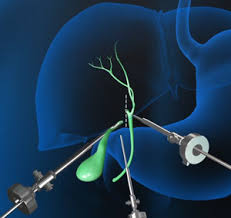
- Fried foods: Fried foods are typically high in unhealthy fats, and because they are difficult to digest, they can lead to bloating, indigestion, and diarrhea. Examples include fried chicken, french fries, onion rings, and doughnuts.
- Fatty cuts of meat: Meats like bacon, sausage, and fatty steaks should be limited as they contain high amounts of saturated fats.
- High-fat dairy: Full-fat cheeses, whole milk, butter, and cream should be avoided or consumed in moderation.
Why Avoid Them? These foods are difficult to digest and can trigger symptoms like nausea, diarrhea, and bloating. Large amounts of fat may overwhelm the digestive system, leading to discomfort and malabsorption.
Spicy Foods
Spicy foods can irritate the stomach and intestines, which can be particularly problematic after gallbladder surgery. Spices such as hot peppers, chili powder, curry, and hot sauces can cause gastrointestinal distress, including nausea, acid reflux, and abdominal discomfort.
- Examples: Spicy curries, hot wings, chili con carne, and foods with a lot of hot sauce or spicy seasonings.
Why Avoid Them? Spicy foods can irritate the digestive tract and may exacerbate symptoms like bloating, heartburn, and stomach cramps. After gallbladder surgery, the digestive system may be more sensitive, and spicy foods can worsen these symptoms.
Caffeinated Beverages
Caffeine is a known irritant to the stomach and can increase acid production, which can cause discomfort, indigestion, and bloating. After gallbladder surgery, it’s a good idea to limit or avoid caffeine, especially in the early stages of recovery.
- Examples: Coffee, tea, energy drinks, and sodas that contain caffeine.
Why Avoid Them? Caffeine can stimulate the production of stomach acid, leading to heartburn and indigestion, particularly in those who have recently undergone surgery. Additionally, caffeine may exacerbate symptoms like diarrhea, which some individuals experience after gallbladder removal.
Carbonated Beverages
Carbonated beverages like sodas and sparkling water contain gas, which can lead to bloating and discomfort in the stomach and intestines. This is especially problematic after gallbladder surgery, as the digestive system is adjusting to the absence of the gallbladder.
- Examples: Soda, sparkling water, carbonated soft drinks, and beer.
Why Avoid Them? Carbonated drinks can increase gas and cause bloating. After surgery, your digestive system may already be sensitive, and consuming carbonated beverages can make you feel more uncomfortable.
Processed and Packaged Foods
Processed and packaged foods often contain unhealthy fats, refined sugars, and artificial additives, which can be hard on the digestive system. These foods can also cause inflammation, leading to digestive discomfort and other symptoms like bloating and indigestion.
- Examples: Processed snacks, frozen meals, packaged chips, cookies, and ready-to-eat fast foods.
Why Avoid Them? Processed foods are typically low in fiber and high in unhealthy fats, which can be hard to digest after gallbladder surgery. They can also lead to inflammation and exacerbate symptoms like bloating, indigestion, and diarrhea.
High-Sugar Foods
Foods high in refined sugars, such as candies, cakes, pastries, and sugary cereals, should also be avoided after gallbladder surgery. These foods can contribute to bloating, gas, and diarrhea, and they provide little nutritional value to help the body heal.
- Examples: Sugary candies, cakes, pastries, ice cream, and sweetened beverages.
Why Avoid Them? High-sugar foods can cause digestive upset and may worsen diarrhea or bloating. They are also low in essential nutrients needed for recovery and overall health.
Dairy Products (in Excess)
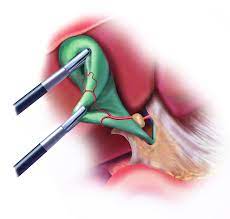
While some low-fat dairy products may be tolerated in moderation, full-fat dairy should generally be avoided after gallbladder surgery. Full-fat dairy products can be hard to digest and may lead to gastrointestinal discomfort.
- Examples: Full-fat milk, cheese, butter, cream, and ice cream.
Why Avoid Them? Full-fat dairy products can be difficult to digest after gallbladder removal and may contribute to bloating, diarrhea, and indigestion. Low-fat options may be better tolerated and can still provide necessary nutrients like calcium and protein.
Foods That Cause Gas
Certain foods can increase gas production in the intestines, leading to bloating and discomfort. After gallbladder surgery, patients may be more sensitive to these foods, which can exacerbate digestive issues.
- Examples: Beans, broccoli, cabbage, cauliflower, onions, and garlic.
Why Avoid Them? These foods are known to cause gas and bloating, which can be particularly uncomfortable for people recovering from gallbladder surgery.
3. Tips for Managing Your Diet After Gallbladder Surgery
While avoiding certain foods is important for a smooth recovery, it’s equally crucial to incorporate foods that are easy to digest and support your body’s healing process. Here are some dietary tips to help you manage your diet post-surgery:
Eat Small, Frequent Meals
After gallbladder surgery, it’s helpful to eat smaller, more frequent meals throughout the day. This allows your body to digest food more easily and prevents overwhelming your digestive system with large meals.
Include Low-Fat, Easily Digestible Foods
Opt for low-fat, easy-to-digest foods, such as boiled potatoes, rice, oatmeal, and lean proteins like chicken or turkey. These foods are gentle on the digestive system and provide the nutrients your body needs to heal.
Stay Hydrated
Drinking plenty of water is essential to prevent dehydration, especially if you are experiencing diarrhea or digestive upset. Water helps keep the digestive system functioning properly and supports overall recovery.
Introduce Fiber Slowly
While fiber is an essential part of a healthy diet, too much fiber too soon after gallbladder surgery can cause discomfort. Introduce fiber gradually and focus on soluble fiber sources, such as oats, apples, and bananas.

